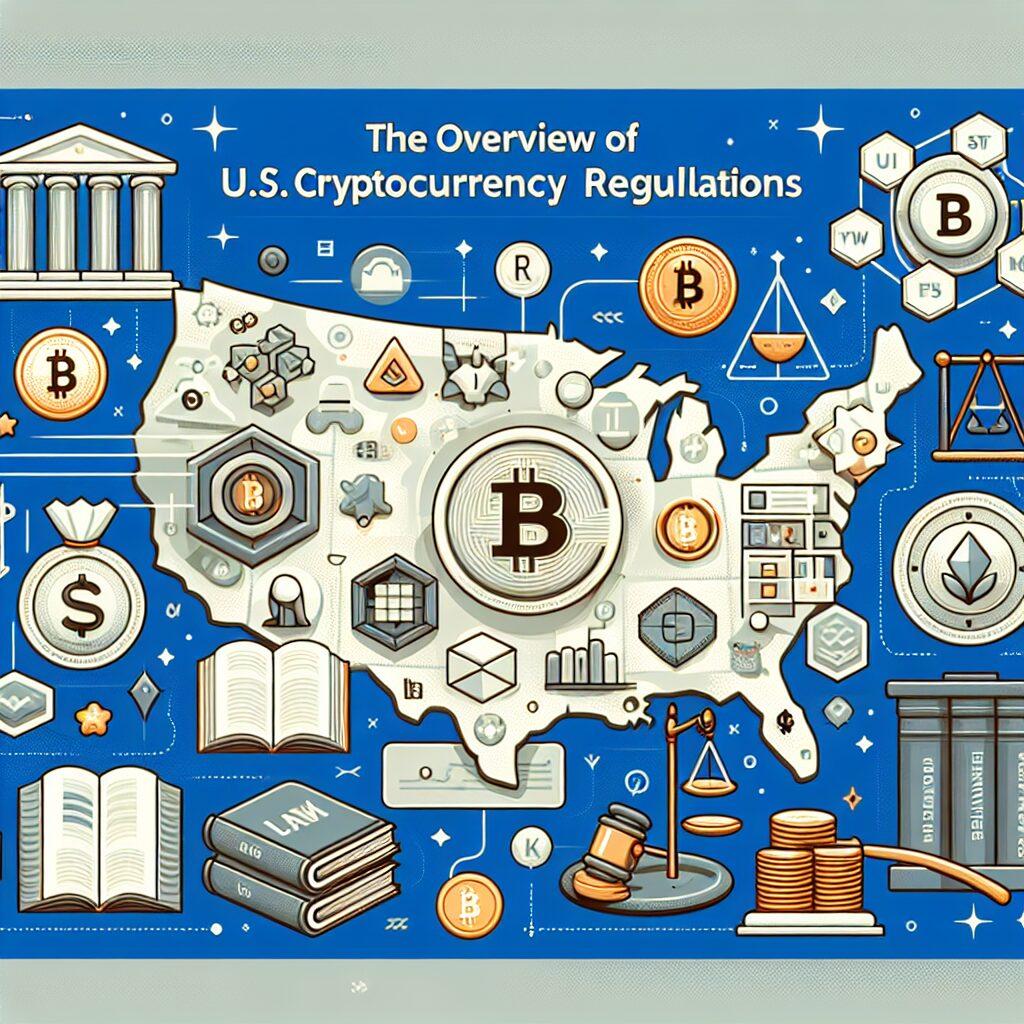– Introduction to Japan's New Crypto Rules

Japan’s new crypto rules, which have emerged as a comprehensive framework designed to regulate the burgeoning digital asset sector, reflect the country’s proactive approach to fostering a secure and innovative environment for cryptocurrency operations while ensuring robust consumer protection. These regulations, which have been meticulously crafted by Japanese authorities, aim to strike a delicate balance between encouraging technological innovation and safeguarding the interests of investors, thereby setting a precedent that other nations might consider emulating. By instituting stringent compliance requirements, including mandatory registration for cryptocurrency exchanges and detailed anti-money laundering protocols, Japan seeks to mitigate risks associated with digital currencies and bolster the integrity of its financial system. Moreover, the Japanese government has demonstrated a commitment to fostering collaboration between regulatory bodies and industry stakeholders, thereby facilitating a dialogue that encourages transparency and mutual understanding. As Japan continues to refine its approach to cryptocurrency regulation, it remains poised to become a leader in the global effort to integrate digital assets into the mainstream financial landscape while protecting its citizens from potential financial harm.
– Overview of U.S. Cryptocurrency Regulations

The regulatory landscape for cryptocurrencies in the United States is characterized by a complex and evolving framework that involves multiple federal and state agencies, each with its own set of guidelines and enforcement mechanisms, which can create challenges for businesses and investors seeking clarity and consistency. The Securities and Exchange Commission (SEC) plays a pivotal role in determining whether certain digital assets qualify as securities, thereby subjecting them to securities laws, while the Commodity Futures Trading Commission (CFTC) oversees the trading of cryptocurrency derivatives, asserting its authority over digital assets that are deemed commodities. Moreover, the Financial Crimes Enforcement Network (FinCEN) requires cryptocurrency exchanges to comply with anti-money laundering (AML) and know-your-customer (KYC) regulations, which are designed to prevent illicit financial activities and enhance transparency within the crypto ecosystem. Additionally, individual states have implemented their own regulatory measures, such as New York’s BitLicense, which imposes strict requirements on businesses operating within the state, further complicating the regulatory environment and necessitating a nuanced understanding of both federal and state laws. As the cryptocurrency industry continues to grow and innovate, U.S. regulators are faced with the challenge of striking a balance between fostering innovation and ensuring consumer protection, which may involve updating existing regulations or crafting new ones to address emerging risks and opportunities.
– Key Differences Between Japan and U.S. Crypto Policies

The key differences between Japan and U.S. crypto policies are rooted in their distinct regulatory approaches, which reflect each country’s unique priorities and perspectives on the rapidly evolving digital asset landscape. Japan, known for its proactive stance, has implemented comprehensive regulations that emphasize consumer protection and market integrity, requiring exchanges to register with the Financial Services Agency and adhere to stringent security measures. In contrast, the United States employs a more fragmented regulatory framework, where multiple agencies, including the Securities and Exchange Commission and the Commodity Futures Trading Commission, oversee different aspects of the cryptocurrency market, often leading to regulatory uncertainty and complexity. This divergence in regulatory strategies results in varying levels of clarity and predictability for businesses and investors, with Japan offering a more streamlined and transparent environment that fosters innovation while ensuring compliance. Meanwhile, the U.S. regulatory landscape, characterized by its decentralized approach, poses challenges for companies seeking to navigate the intricate web of state and federal laws, which can hinder growth and create barriers to entry. These differences underscore the broader global debate on how best to balance innovation with regulation in the cryptocurrency sector, as countries strive to protect consumers and maintain financial stability while encouraging technological advancement and economic competitiveness.
– Impact on Global Crypto Markets

The impact of Japan’s new crypto rules and the existing U.S. regulations on global crypto markets cannot be overstated, as both nations play significant roles in shaping the landscape of digital currencies worldwide, influencing market dynamics, investor confidence, and regulatory frameworks across different jurisdictions. Japan, known for its progressive stance on cryptocurrency, has introduced comprehensive regulations aimed at fostering innovation while ensuring consumer protection, which may encourage other countries to adopt similar measures, thereby promoting a more harmonized global regulatory environment. Conversely, the United States, with its patchwork of state and federal regulations, presents a more complex regulatory landscape that can lead to uncertainty among market participants, potentially stifling innovation and creating a challenging environment for international cooperation. As these two major economies navigate their regulatory approaches, the global crypto market may experience shifts in trading volumes, investment flows, and the development of new technologies, as businesses and investors seek jurisdictions that offer clarity, stability, and favorable conditions for growth. This evolving regulatory scenario underscores the importance of international dialogue and collaboration to address the cross-border nature of cryptocurrencies and ensure that regulations do not inadvertently hinder the potential benefits of blockchain technology for the global economy.
– Challenges and Opportunities for Investors

In the evolving landscape of cryptocurrency regulations, investors face a complex array of challenges and opportunities as they navigate the differing regulatory frameworks in Japan and the United States, which are both striving to balance innovation with consumer protection and market stability. The new crypto rules in Japan offer a structured environment that emphasizes investor security and transparency, potentially attracting those who prioritize safety and regulatory clarity; however, these regulations could also limit the flexibility and rapid innovation that some investors seek. Conversely, the regulatory environment in the United States remains somewhat fragmented and uncertain, presenting both risks and opportunities as investors must carefully assess the evolving legal landscape and the potential for future regulatory shifts that could impact market dynamics. Additionally, the differing approaches in these two major economies may offer opportunities for investors to diversify their portfolios by leveraging the strengths of each regulatory system, though this requires a nuanced understanding of the legal and financial implications of operating in multiple jurisdictions. As global regulatory trends continue to evolve, investors must remain vigilant and informed, recognizing that the interplay between regulation and market opportunities is crucial for making strategic investment decisions in the cryptocurrency space.
– Future Outlook for Cryptocurrency Regulation

The future outlook for cryptocurrency regulation is poised to be an area of significant interest and development as nations around the world grapple with the challenges and opportunities presented by the rapidly evolving digital asset landscape, with Japan and the United States being no exceptions. As Japan continues to refine its regulatory framework to foster innovation while ensuring consumer protection and market integrity, it is likely that the country will serve as a model for other jurisdictions looking to balance these sometimes competing priorities. In contrast, the United States, with its patchwork of state and federal regulations, may face challenges in creating a cohesive and comprehensive regulatory environment that can accommodate the diverse and dynamic nature of the cryptocurrency market. However, ongoing discussions among lawmakers, regulators, and industry stakeholders may eventually lead to a more unified approach that can enhance clarity and confidence for investors and businesses alike. As both countries navigate their respective regulatory paths, the global cryptocurrency community will be closely monitoring their progress, as developments in these major economies could have far-reaching implications for the adoption and regulation of digital assets worldwide.


